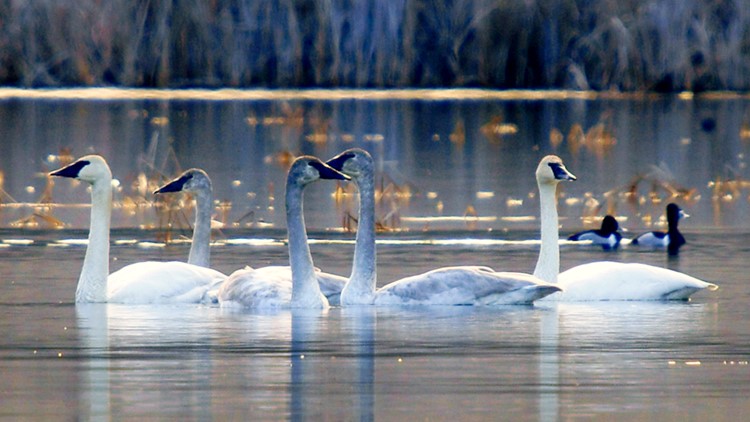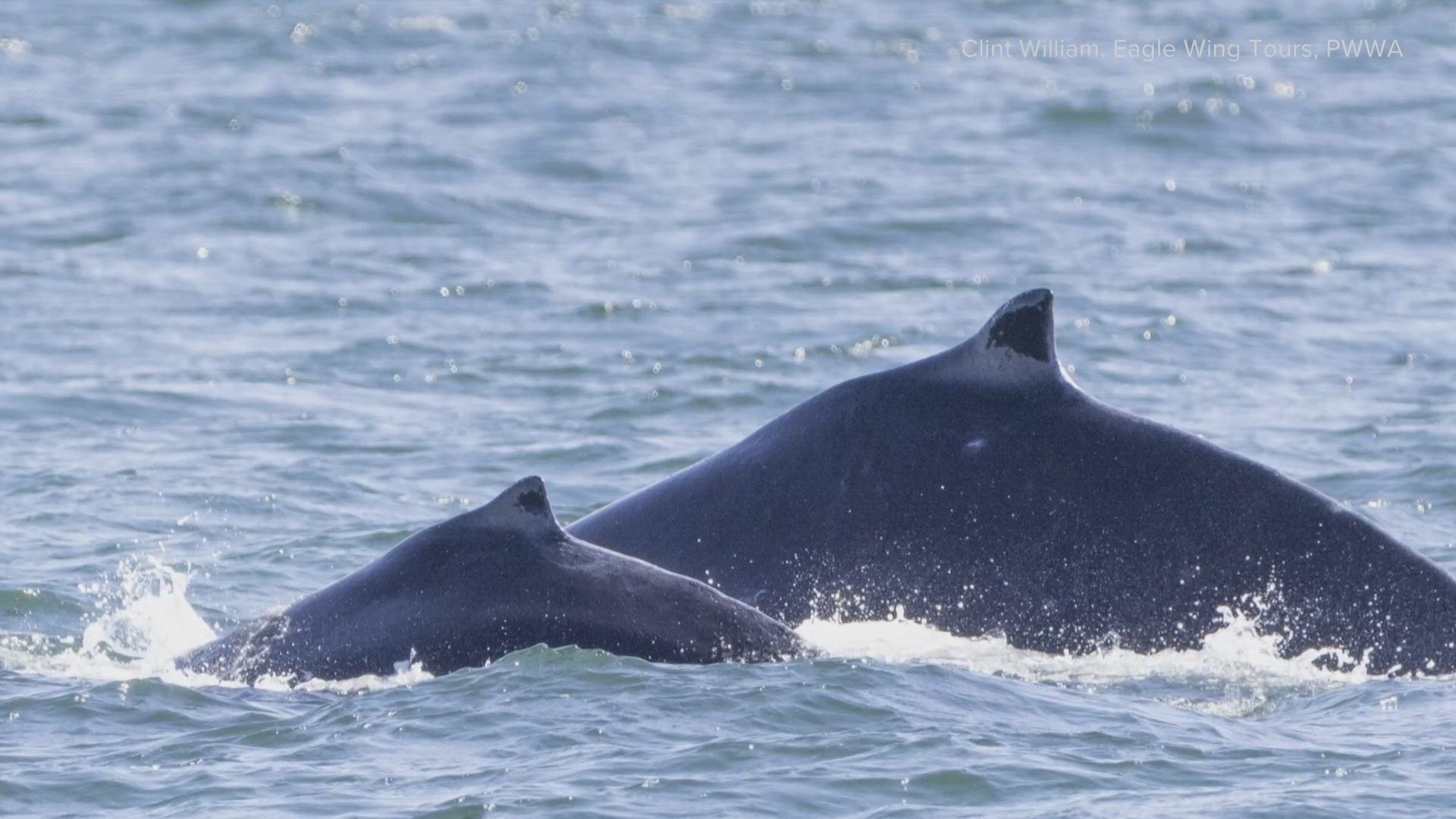Editor's note: The above video previously aired on KING 5 in 2015.
Fall is the time of year when swans return to several counties across western Washington, but wildlife experts say the birds may be in danger and they're asking for the public's help to keep them healthy.
The Washington Department of Fish and Wildlife (WDFW) is warning trumpeter and tundra swans flocking back to areas in Whatcom, Snohomish, and Skagit counties could be at risk for lead poisoning.
Swans die from lead poisoning each winter after ingesting lead from ammunition and other debris in areas where they feed, according to WDFW.
WDFW has established a 24/7 hotline residents can call if they see a swan in distress.
“If you observe dead, sick, or injured swans, do not handle or collect the birds,” said Daniel Zimmerman, WDFW biologist. “Call the hotline instead.”
While lead shot has been banned for waterfowl hunting in Washington since 1991, the swans can still pick it up in areas where the lead is present.
Efforts to locate sources of toxic lead and minimize exposure have been going on since 2001.
If you see a swan in need, you can call (360) 466-4345, ext. 266. You should be ready to leave a short-detailed message including your name, number, and location and condition of the swans. The hotline is available through the end of March.
Employees from WDFW, Puget Sound Energy, and volunteers from the Northwest Swan Conservancy are responsible for collecting the birds.



